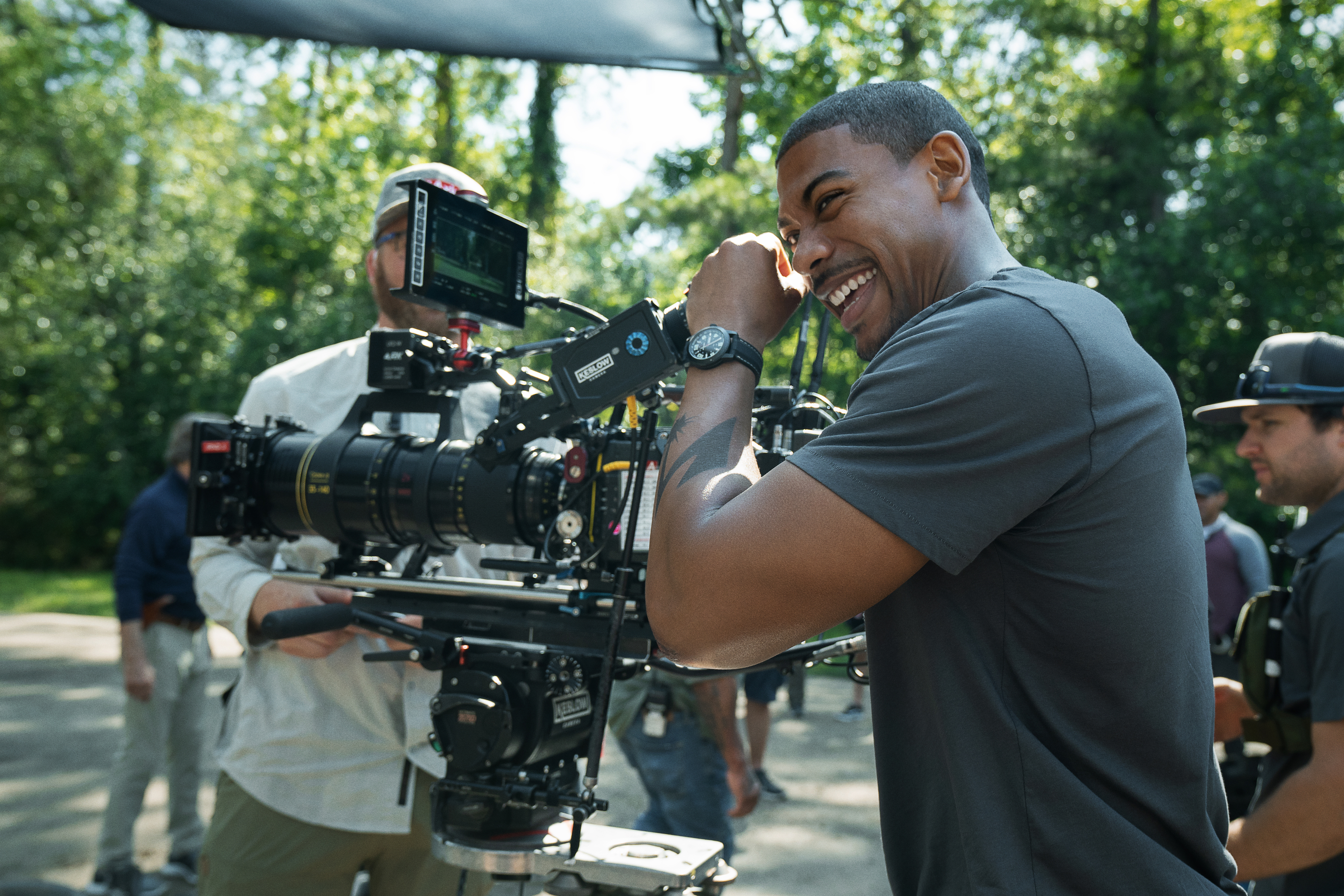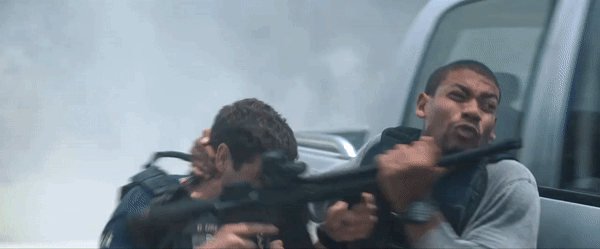Jeremy Saulnier’s supremely tense new Netflix movie Rebel Ridge sits firmly in the action category. But where stylized hit actioners like the John Wick series or the HiGH&LOW movies get their mileage from over-the-top action stunts, the throwdowns in Rebel Ridge are simple and streamlined enough to feel entirely believable.
Previous standout Saulnier movies like Blue Ruin and Green Room handle violence in graphic, gory ways, but they ground bloody conflict in reality. Rebel Ridge has more of a blockbuster build than those films in terms of its direction and its ending. But still, the fights are, as Saulnier repeatedly put it in a preview with Polygon, consciously and intentionally “sloppy.”
“I can watch an action hero take out an entire building of people, and I’m impressed with the stunt work,” Saulnier says. “The choreography is mind-blowing, and I love taking that ride. But I really don’t feel much. I don’t feel the harrowing nature of what one might experience going up against another human. So with [Rebel Ridge’s] choreography, I was always there to thwart the stunt team’s efforts to make things cooler, bigger, more satisfying. Like, ‘Take it down a notch!’ or ‘I don’t think that would happen!’ I was always there to, like, make it sloppy and awkward.”
[Ed. note: Spoilers ahead for Rebel Ridge.]
Rebel Ridge stars The Underground Railroad’s Aaron Pierre as Terry Richmond, a Black Marine veteran and martial-arts instructor visiting a small Southern town to bail his cousin out of jail. He’s operating on a strict deadline, with his cousin’s life at stake, but the white local police start harassing him the second he arrives in town, stealing his bail money under the pretense of civil asset forfeiture and threatening him with jail or worse if he pushes back.
Terry is a polite, cautious, measured man. It’s hard to watch Rebel Ridge without thinking of Ta-Nehisi Coates’ Between the World and Me and other prominent writing by and about Black parents having “the talk” with their kids about how to navigate racially charged police encounters. Terry is clearly familiar with those dynamics and the importance of keeping his temper even in the wake of outrageous provocation and open bullying, and yet it’s obvious that, at some point, he’s going to snap and push back against the injustice and abuse the police are piling on him — particularly local police chief Sandy Burnne (Don Johnson).
The entire movie is a long, tense wait to see which straw is finally going to break Terry’s back. And there’s a natural expectation that — like Sylvester Stallone’s similar military vet in 1982’s First Blood, dealing with equally out-of-bounds small-town policemen — Terry is going to leave a cathartic trail of bodies in his wake when he does finally stop holding himself in check.
But Saulnier didn’t want Rebel Ridge to end with a wave of dramatic neck-snapping and body-pulverizing: He wanted “a traditional American action flick, with ideally more artistry.” And he wanted Terry to feel vulnerable.
“Aaron and I and the stunt team just worked really hand in hand. I did my research and I’d seen how martial arts disciplines play out in the real world,” Saulnier says. “It comes down to mostly sloppy grappling and just brute force. Certainly there’s an amount of technique and knowledge, but a lot of it is about leverage and position, and not so much fancy moves. Wire work never came into play, except for a couple of things to help take weight off people. I leaned into my strength, which is awkward reality, and through that, a more real battle space, and more real hand-to-hand combat. And through that, to me, to a bigger dramatic payoff — a bigger emotional experience than these sorts of big spectacle films.”
Saulnier laughs a bit in our interview as he suggests that his stunt crew didn’t fully understand why he was pushing back against traditional action until they saw the finished movie. “We finally screened it for the crew down in New Orleans last week, and I think they fully realized what I was going for — the emotionally charged, subjective experience of Terry Richmond carving through, these adversaries,” he says.
“There was one instance where we had some choreography that was pretty awesome, and I was in the edit room looking at it. And I felt very proud of the work we did, as a fan of MMA, and a person who’s researched way more combat than I’d like to admit. But it didn’t feel real. So some of the coolest choreography ended up getting cut, because if it didn’t feel fully true, based on Aaron’s physicality and whoever he’s against, it had to go. Which was painful, but gratifying. The note to the stunt team was like, We are paying homage to so many films, but we need to carve our own path and make this its own genre.”
Part of that big emotional payoff was giving Terry and his allies in the movie a more positive ending than fans of Saulnier’s other work might expect. “I do think people will be surprised, when they finally see this movie, at the level of nuance and layers that are there, and the predicaments everybody’s in,” Saulnier says. “Not excusing any sort of behavior, but just gaining understanding of why us humans are in such conflict — and hopefully offering a little catharsis, which is new for me. You know, I’m used to having a dreadful gut-punch of a movie, leaving audiences in a state of shock or dread. And this movie, I think, transcends that bar. We’ve had almost euphoric responses. When you hear people in a theater experiencing this movie together — it’s been really encouraging and bizarrely uplifting.”
Rebel Ridge is streaming on Netflix now.

